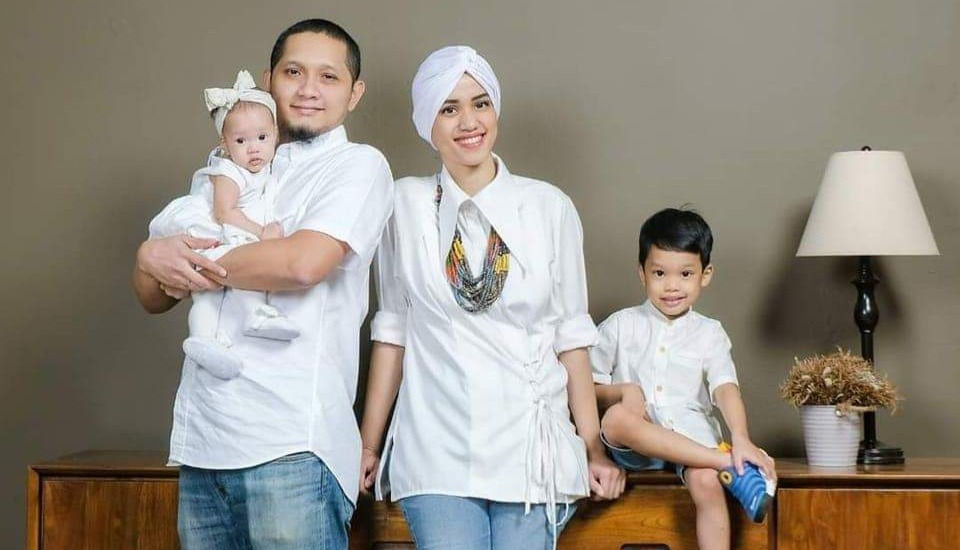Tuning the Mind: Hazwady's Fight Against Anti-NMDA Encephalitis
- You Ting Ng
- Sep 6, 2023
- 3 min read
Meet Hazwady, 39, a seasoned guitar teacher and a gifted songwriter at Christofori Music School. From the outside, his vibrant performances would never betray the debilitating illness that lurks within.

It was 2019 when the first signs of trouble emerged— Haswady started to experience a peculiar sensitivity to light and insomnia. He resorted to long, solitary runs through the empty streets, seeking refuge from the relentless grip of sleeplessness.
Hazwady sought the guidance of an ophthalmologist, who prescribed a pair of anti-photophobia glasses. Little did he know that his journey had only just begun. One month later, Hazwady awoke within the sterile confines of Singapore General Hospital (SGH). His wife, a doctor herself, told him that he had suffered a seizure at home. He was ready to be discharged since his test results were normal. But the very next day, the seizures returned, prompting further investigations.
Despite undergoing EEG to record brain activity, the results only revealed some unspecific twitching. The CT and MRI scans similarly failed to shed light on his condition. To delve deeper into the mystery, a lumbar puncture (LP) was conducted.
However, even with these investigations, Hazwady's confusion persisted, escalating to the point where he required restraints and had to rely on a diaper for bodily functions.
Puzzlingly, there were initial doubts surrounding his medical condition, as all the tests appeared normal, despite the presence of unusual seizures. Seeking further clarity, he was referred to a psychiatrist, who also dismissed the likelihood of mental issues, given Hazwady's history of no such problems since childhood.
About a week after the lumbar puncture (LP), the results revealed that Hazwady tested positive for antibodies against NMDA receptors, a fortunate discovery since this condition is treatable. He promptly received intravenous immunoglobulin (IVIG) treatment, leading to a gradual alleviation of his hallucinations, confusion, and other behavioural issues. After a week-long stay at SGH, he was discharged feeling physically fit and seemingly back to normal.
However, Hazwady's wife, noticing subtle changes, believed that his recovery was incomplete. He appeared different—less responsive and engaging than before. Additionally, he began experiencing excessive sleepiness, struggling to stay awake even during activities like running. Seeking answers, Hazwady returned to Singapore National Eye Centre (SNEC) to have his eyes examined, but no abnormalities were found.
Recognising the need for specialized care, his wife suggested admitting him to Sengkang Hospital, where they knew of a neurologist specializing in his condition. Another round of IVIG treatment was initiated, which effectively resolved the major issues like hallucinations.
Nevertheless, Hazwady encountered significant cognitive challenges, including difficulty thinking, poor concentration, clouded thoughts, and a loss of ability to form new memories. These impairments greatly impacted his work, eventually leading him to make the difficult decision to quit his job.
The subsequent follow-up visit to the Neurology clinic shattered Hazwady's hopes. Rather than attributing his ongoing struggles to NMDA, he was diagnosed with depression, leaving him devastated and feeling like his world was collapsing. The weight of this diagnosis further fueled his depression, compounded by the development of eczema and severe skin peeling. Despite their efforts to find alternative treatments, nothing seemed to improve his condition.
Desperate for a solution, Hazwady and his wife attempted to secure an appointment at Tan Tock Seng Hospital (TTSH) but faced a frustrating wait of six months. While waiting, they sought help from another neurologist at Raffles Hospital. It was there that he was prescribed Cellcept, an immunosuppressant. Miraculously, his condition began to improve, and he gradually regained his normal self. Unfortunately, four months ago, the photophobia returned, leading Hazwady to be admitted to TTSH. This time, he received a steroid dosage of 100mg, albeit experiencing the usual side effects such as bloating.
Currently, under the care of a skilled neurologist at TTSH, Hazwady remains on a low dose of steroids (2.5mg) and Cellcept (250mg). He draws strength and gratitude from his loving wife and two children, who have provided unwavering support throughout the challenging journey he has faced in recent years.
.png)






Comments